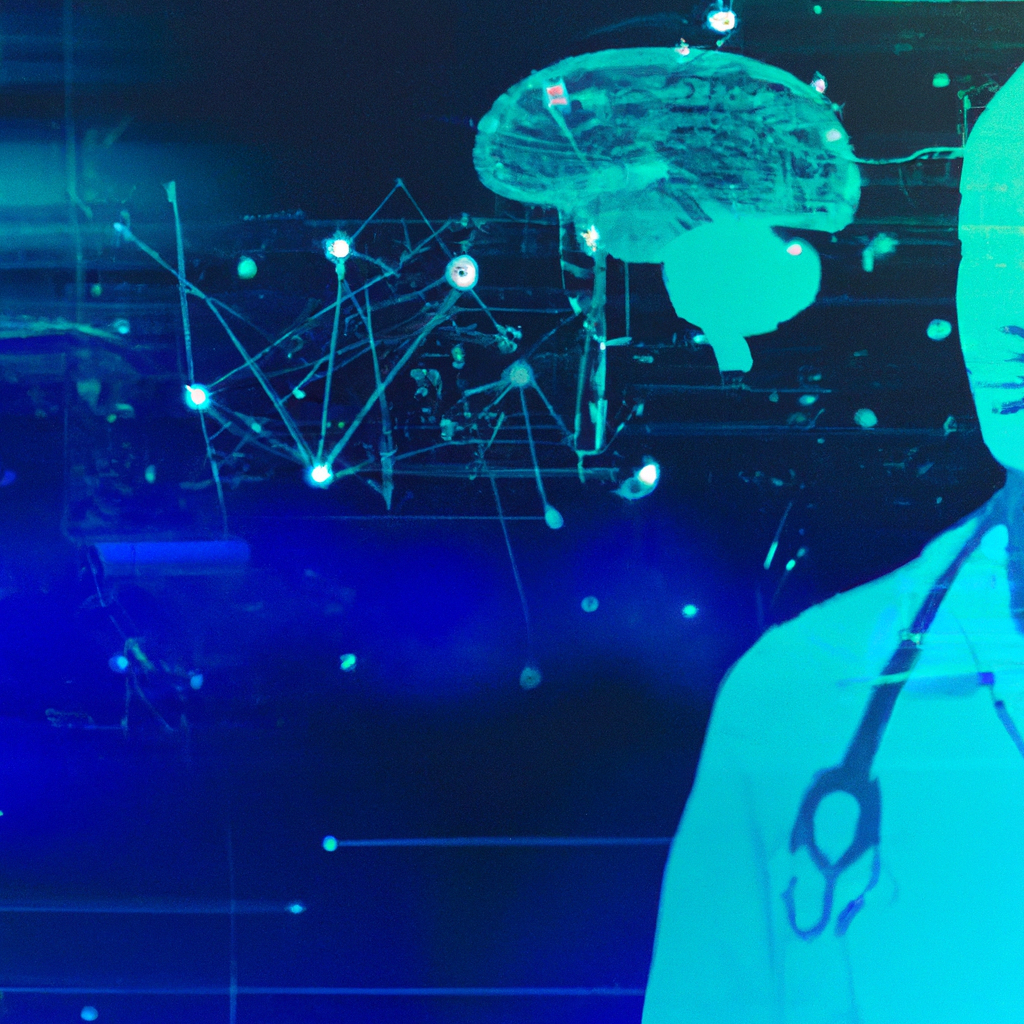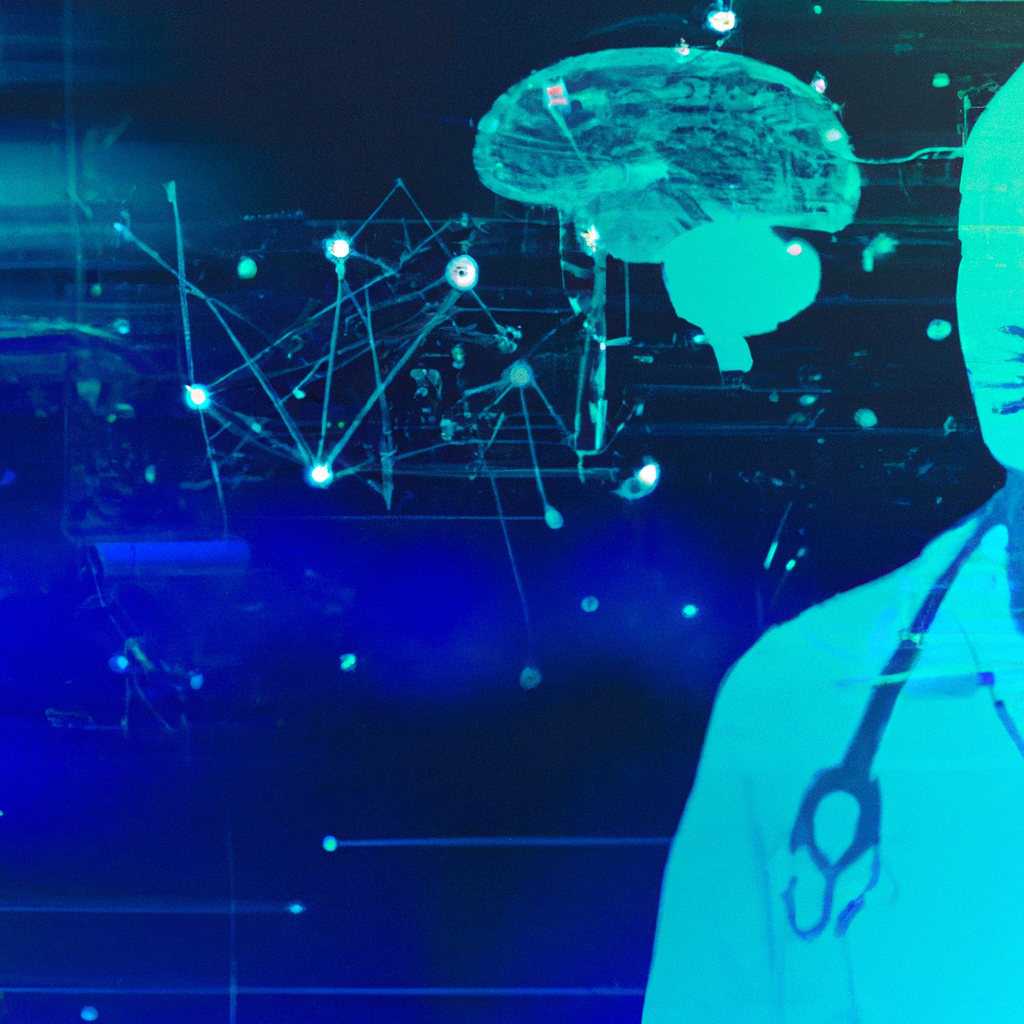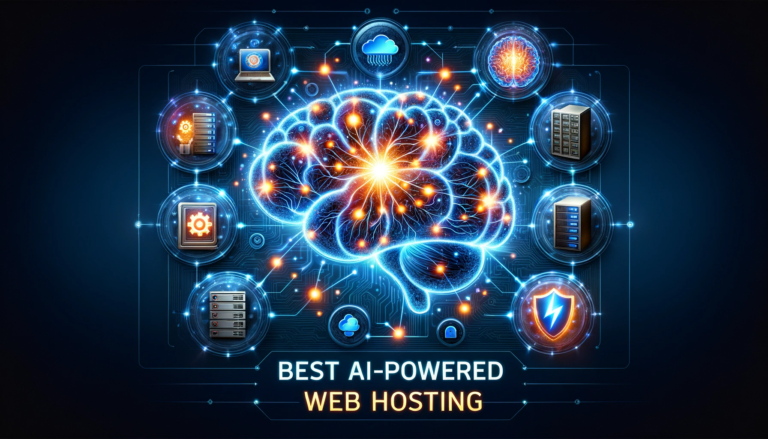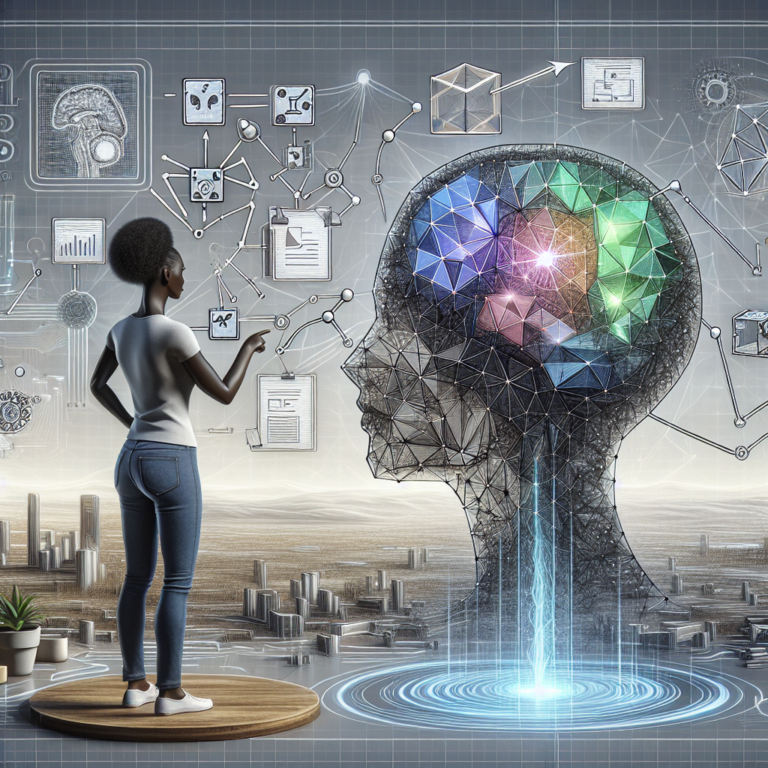
In today’s rapidly advancing world, technology continues to revolutionize every aspect of our lives, including healthcare. Artificial Intelligence (AI) has emerged as a powerful tool in this domain, offering endless possibilities for improving patient care, diagnosis, and treatment. This article will explore the various ways AI can be utilized to enhance the healthcare industry, from analyzing vast amounts of medical data to aiding in early disease detection. So, if you’re curious about how AI can help revolutionize healthcare, you’re in the right place. Let’s explore the exciting world of AI in healthcare together.

Healthcare Challenges
Aging Population
The world’s population is rapidly aging, resulting in an increased demand for healthcare services. With an aging population comes unique medical needs, such as a higher prevalence of chronic diseases and age-related conditions. This demographic shift puts pressure on healthcare systems to provide more efficient and effective care.
Increase in Chronic Diseases
Chronic diseases, such as heart disease, diabetes, and cancer, are on the rise globally. These conditions require long-term management and can have a significant impact on individuals’ quality of life. Managing the increasing burden of chronic diseases is a challenge for healthcare providers, as it requires a proactive approach to prevention, early detection, and personalized treatment.
Healthcare Costs
The rising cost of healthcare is a significant challenge that many countries face. Traditional healthcare systems are often inefficient and cost-intensive, with significant expenses related to hospital stays, medication, and treatments. Finding ways to decrease healthcare costs while maintaining high-quality care is crucial for ensuring equitable access to healthcare services.
Benefits of AI in Healthcare
Improved Diagnosis and Treatment
AI has the potential to enhance diagnostic accuracy and improve treatment outcomes. By applying machine learning algorithms to medical data, AI systems can analyze vast amounts of patient information, detect patterns, and make predictions. This can help healthcare professionals make more accurate diagnoses and choose the most effective treatment plans tailored to individual patients.
Increased Efficiency
AI can streamline administrative tasks, optimize workflow, and improve the efficiency of healthcare processes. By automating repetitive and time-consuming tasks, healthcare providers can focus more on direct patient care. AI-powered systems can also assist in resource allocation, patient scheduling, and patient monitoring, leading to better utilization of healthcare facilities and personnel.
Patient Engagement
AI technology can empower patients to take a more active role in their healthcare journey. Through virtual assistants, wearable devices, and health apps, patients can access personalized health information, monitor their conditions, and receive real-time feedback. This improved engagement not only enhances patient satisfaction but also promotes better self-management and adherence to treatment plans.
Applications of AI in Healthcare
Medical Imaging and Analysis
AI is revolutionizing medical imaging by improving accuracy and efficiency. Machine learning algorithms can analyze medical images, such as X-rays, CT scans, and MRIs, to identify abnormalities and provide valuable insights to radiologists. This helps reduce diagnostic errors, enables early detection of diseases, and speeds up the interpretation of images, ultimately leading to better patient outcomes.
Drug Discovery and Development
The process of discovering and developing new drugs is time-consuming and costly. AI can accelerate this process by analyzing large datasets, predicting drug efficacy and toxicity, and identifying potential target molecules. Through AI algorithms, researchers can optimize drug design, shorten drug development timelines, and increase the chances of successful drug trials, ultimately bringing innovative treatments to patients faster.
Virtual Assistants
Virtual assistants powered by AI have the potential to revolutionize healthcare delivery. These digital companions can provide patients with personalized healthcare information, answer medical questions, and offer lifestyle recommendations. Virtual assistants can also assist healthcare professionals by providing real-time clinical decision support, freeing up valuable time for physicians and improving patient care.
AI and Data Analytics
Data Collection and Integration
AI enables the collection and integration of vast amounts of healthcare data from various sources, including electronic health records (EHRs), wearables, and genome sequencing. By aggregating and analyzing this data, AI systems can generate valuable insights, identify trends, and facilitate evidence-based decision-making. This comprehensive analysis of diverse data sets can lead to more accurate predictions and personalized treatment plans.
Predictive Analytics
Predictive analytics powered by AI can help healthcare providers anticipate and prevent adverse events. By analyzing patient data and identifying risk factors, AI algorithms can predict the likelihood of developing certain conditions or experiencing specific complications. This proactive approach enables early intervention and targeted preventive measures, reducing healthcare costs and improving patient outcomes.
Precision Medicine
AI plays a crucial role in advancing precision medicine, which aims to tailor medical treatments to an individual’s unique characteristics. By integrating genomic data, clinical information, and AI algorithms, healthcare providers can identify targeted therapies, predict treatment response, and optimize personalized treatment plans. This approach offers the potential for more effective treatments with reduced side effects.

AI Ethics and Privacy
Data Security and Privacy
As AI relies on vast amounts of personal health data, ensuring data security and privacy is of utmost importance. Healthcare organizations must implement robust cybersecurity measures to protect patient information from unauthorized access or breaches. Additionally, ethical considerations should guide the responsible use and sharing of healthcare data to uphold patient trust and maintain confidentiality.
Algorithm Bias and Transparency
AI algorithms are not immune to biases and may reflect existing societal biases present in healthcare data. It is essential to address these biases and ensure that AI systems provide fair and unbiased outcomes. Transparency in AI algorithms’ decision-making process is crucial for understanding their limitations and building trust among healthcare professionals and patients.
Implementing AI in Healthcare
Integration with Electronic Health Records
Integrating AI technology with existing electronic health records (EHRs) systems is essential for effective implementation. AI can augment EHRs by automatically extracting relevant clinical information, assisting in data analysis, and generating decision support tools. This integration enhances the quality and usability of EHRs, leading to better-informed clinical decisions and improved patient care.
Training and Education
To realize the full potential of AI in healthcare, healthcare professionals need to be adequately trained and educated in AI concepts and technologies. Implementing training programs that focus on AI literacy and its application in healthcare is essential for healthcare providers to embrace and effectively utilize AI tools. Continuous education and upskilling will prepare the workforce for the evolving landscape of healthcare AI.
Ethical Considerations
The implementation of AI in healthcare raises ethical considerations that must be addressed. Balancing the benefits of AI with patient privacy, informed consent, and data protection requires clear guidelines and regulatory frameworks. Ethical considerations should be at the forefront of AI implementation, ensuring that AI technology is used responsibly and to the benefit of patients and society.
Challenges and Limitations
Ethical Dilemmas
AI deployment in healthcare raises ethical dilemmas, such as the responsibility for errors made by AI algorithms or the potential replacement of human healthcare professionals by AI systems. Striking the right balance between human judgment and AI-driven decision support is crucial to ensure ethical and effective healthcare delivery.
Legal and Regulatory Barriers
The rapid advancement of AI technology often outpaces regulatory frameworks, creating legal and regulatory barriers to implementing AI in healthcare. Developing appropriate regulations that consider patient safety, data security, and algorithm transparency is crucial to harnessing the full potential of AI while safeguarding patient rights and well-being.
Resistance to Change
The integration of AI into healthcare systems may face resistance from healthcare professionals and patients who are unfamiliar with or skeptical of AI technology. Overcoming resistance requires effective communication, education, and demonstration of AI’s benefits, fostering a culture that embraces innovation and reinforces trust between patients and healthcare providers.
Future of AI in Healthcare
Advancements in AI Technology
The future of AI in healthcare holds great promise as technology continues to advance. As AI algorithms become more sophisticated, capable of processing complex data and adapting to new scenarios, their diagnostic and therapeutic potential will expand. Continued investment in research and development will lead to further breakthroughs, enhancing the precision, efficiency, and accessibility of healthcare.
Integration of AI and Robotics
The integration of AI and robotics presents exciting opportunities in healthcare. Robotics powered by AI can perform complex surgeries with precision, assist in physical rehabilitation, and automate repetitive tasks in healthcare settings. This synergy between AI and robotics has the potential to enhance the capabilities of healthcare professionals, improve patient outcomes, and transform the delivery of care.
Personalized Healthcare
AI’s ability to analyze diverse patient data and generate personalized insights opens doors to personalized healthcare. By considering an individual’s unique characteristics, such as genetics, lifestyle, and medical history, AI algorithms can provide tailored treatment recommendations and interventions. This personalized approach holds the promise of better health outcomes, improved patient experiences, and optimized healthcare resource allocation.
Conclusion
AI has the potential to revolutionize healthcare by addressing challenges, improving efficiency, and enhancing patient care. Through improved diagnosis and treatment, increased efficiency, and patient engagement, AI can empower healthcare providers and patients alike. Applications of AI in medical imaging, drug discovery, and virtual assistants further demonstrate the diverse benefits of AI in healthcare. Although ethical considerations, data security, and privacy issues need to be addressed, the future of AI in healthcare looks promising. Advancements in AI technology, integration with robotics, and personalized healthcare are just a few examples of what the future holds. By embracing AI responsibly and ethically, healthcare systems can harness its full potential to improve healthcare outcomes and transform the way healthcare is delivered.






